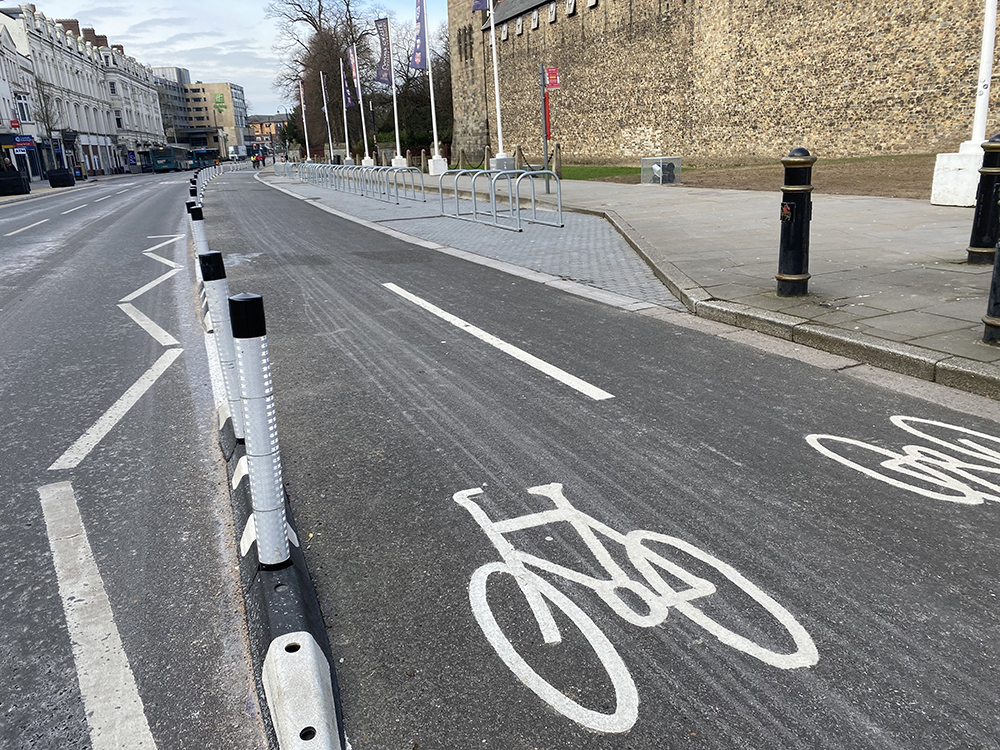The Future Wales plan outlines the next 20 years of development in Wales
NEW Welsh Government plans which help focus on supporting town centres and improving lifestyles as well as providing a national framework for the planning sector have been released.
The Future Wales plan is a spatial development plan which will inform all new planning decisions until 2040.
Any new Local Development Plans (LDPs) must now adhere to the principles set out by this document.
The plan was launched on Wednesday by housing and local government minister Julie James alongside the new edition of Planning Policy Wales, which will provide guidance for local authorities.
Ms James said: “This plan sets out our priorities for growth in employment and housing, in particular affordable housing. It sets out a vision for our villages, towns and cities developing at a walkable scale, with homes, local facilities, green spaces and public transport within easy reach.
“The past year has shown us just how important where we live is to our health and happiness. It’s easier to be healthy and active when we have safe and attractive green space nearby. If more of us are able to work locally or at home we can shorten commutes, reduce congestion and use our local high streets more.”
The development of Future Wales predates the Coronavirus pandemic, but its aims have been influenced by the events of the last year.
Key themes covered by Future Wales are:
- Decarbonisation
- Climate change
- Housing
- Infrastructure
- Transport and travel
- Natural resources
- Covid-19
Future Wales outlines a town centre first approach to any new developments. This means that investment will focus on existing high streets and town centres, and improving public transport links to these areas.
Councils will be given additional powers to refuse planning permission for out-of-town developments that could be located in existing centres. In Cardiff, this could mean high street investment as well as new city centre infrastructure.
The move away from out of centre developments reinforces existing policies, and aligns with Cardiff’s current LDP.
A spokesman for Cardiff Council said: “This development is managed through a tier-led approach, with the requirement for developers to consider city, town or district locations first, before looking at ‘edge of centre’ locations, and then finally considering ‘out of centre’ locations.”
This guidance would complement plans to improve public transport across the city, including new bus routes, a metro network, and a city-wide cycle network.
These improvements will help to reduce the reliance on private vehicles, which will in turn reduce congestion and air pollution levels.

Deputy minister for economy and transport Lee Waters said: “By planning our neighbourhoods so we can live, work and socialise, we have opportunities to reduce congestion and pollution, and create work-life balance benefits for employees and employers.”
Cardiff’s current LDP was adopted in 2016, and a review in November last year suggested that a replacement plan should be created to cover 2021–2036. This is currently going through a review process.
The capital has been designated by Future Wales as an area of national growth, meaning it will benefit from investment in housing, employment and infrastructure.
A Cardiff Council spokesperson said: “The national growth area covers a far wider area that just Cardiff, as it includes both Newport and the Valleys. Cardiff’s role, as the capital city and centre of the region, will be critical to this growth, which will be clearly reflected in evidence set out in the Replacement LDP.”
The plan also emphasises the need for a new ‘green belt’ to the north of Cardiff. Green belts are used to prevent urban settlements from overflowing into green spaces.
The whole of Wales will be subject to a new 20mph default speed limit, which is expected to be implemented over the next few years.
Extinction Rebellion Cardiff say that the phrasing of certain policies will have damaging consequences. While all previous policy said there should be ‘no adverse impact’ on the environment, Future Wales specifies that the affect should not be ‘unacceptable’.
In a Facebook post, the group said the change is “licence for developers to get away with anything.”
Related articles:



